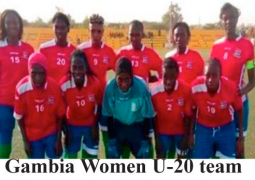The reason that we emphasise women's rights goes beyond history. Traditionally, women have not enjoyed equal access to basic human rights, protections, resources and services. Unfortunately, gender inequality is still present in every society and remained as a huge barrier for the world.
Unequal situations for a woman vary significantly by region, country, culture, society, community and many more. Also there are various conditions and places where women are disadvantaged. The origin of discrimination is sometimes religion, beliefs, cultural and traditions or political interests. These excuses in some occasions encourage the unequal and discriminatory treatment of women, thus, creating an oppressed and a world not so fit for women.
As one of their fundamental human rights, women around the world have access to land, but in some countries it is the contrary.
FACTS ABOUT WOMEN
1. Women represent over 50% of the world's population and provide 60-50% of the world's agricultural labour yet some research indicates they own less than 5% to the world's land.
2. Assets and income in the hands of women results in higher caloric intake and better nutrition for the household than when in the hands of men.
3. Improving women's land rights makes a powerful contribution to the household and food security.
4. Women's property rights increase women's status and bargaining power within the household and community.
5. Secure land rights provide women with greater incentives to adopt sustainable farming practices and invest in their land.
6. More than 80% of farmers in
7. Providing women with secure rights to land that they can farm has the potential to mitigate the impact of HIV/ AIDS on food security and reduce high-risk behaviours.
In that same vein, the
The Point - Introduce yourself to the readers of this page please.
Mai - My name is Mai Sidibeh
The Point - What made you to go into Agriculture instead of selling or going into business?
Mai - I don't sell at the market, it was a long time I realised that farming was what I could do best. The good news is that farming won't make me go into debts, but when I sell at the market, I will run out of money and going into debts would be a sure a thing.
The Point - What time of the year is business best?
Mai - It is not consistent, farmers who plant earlier are always sure to harvest at a good time, providing that there is no invasion of pests and diseases. Because, when there is an invasion, the yield goes down.
The Point - What fertilisers do you use?
Mai - we use N.P.K, fertilisers with small roundish balls locally called "mono" and the smaller finer one locally called "sukur"
The Point - How do you know that a particular crop will perform well in a particular soil, be it sandy, loamy, clayey or loamy clayey?
Mai - Our soil is good. It even encourages mixed cropping, mono cropping and crop rotation. Last year I grew red peppers and this year I am harvesting bitter tomatoes and they are big and juicy. I only thank God.
The Point - What pests and diseases do normally affect your crops?
Mai - We do not know their names, but there are red and black insects. The red ones are the worst, they bore holes through the leaves and suck juices out of them. This weakens the plants and reduces the yield of crops at the same time.
The Point - What time of the year do they normally invade the farm?
Mai - When it rains they don't come, but in the dry season when crop are ready to be harvested that is the moment they choose to come. And that reduces the value of crops, quality and quantity.
The Point - Do you have farm machinery or do you still use local implements to cultivate?
Mai - We don't have modern equipment. We do have watering cans, but they are few.
The Point - What will you be asking from the Government to enhance Agriculture in the
Mai - Many watering cans, more fertilisers, loans and access to wells. As you can see on the other side of the farm. Other fellow women farmers have buried their wells so that there would be more beds to farm on. As a result of that, water becomes scarce for us to water our crops.
The Point - Which crops do normally yield well during this time of the year?
Mai - Bitter tomatoes, garden eggs and cabbage normally yield well this time of the year.
The Point - Which crops do you like to grow most?
Mai - Bitter tomato is my best because it yields easily and consumers like it a lot
The Point - Does the market price usually affect your income?
Mai - That always happens, middlemen demand our harvest at a lower price and when they go to the market they sell it at astronomical prices and that is daylight robbery. This also affects our input since the outcome isn't more than the input.
The Point - With the money you have from the sales you make here, do you pay for your children's school fees or do you only use it for your personal use?
Mai - all what I have goes to pay for my children's school fees and food for the family. I do this to give a helping hand to my husband to make the daily running of the family easier.
The Point - Thanks Mai it was a pleasure talking to you.
Mai - You are most welcomed.


